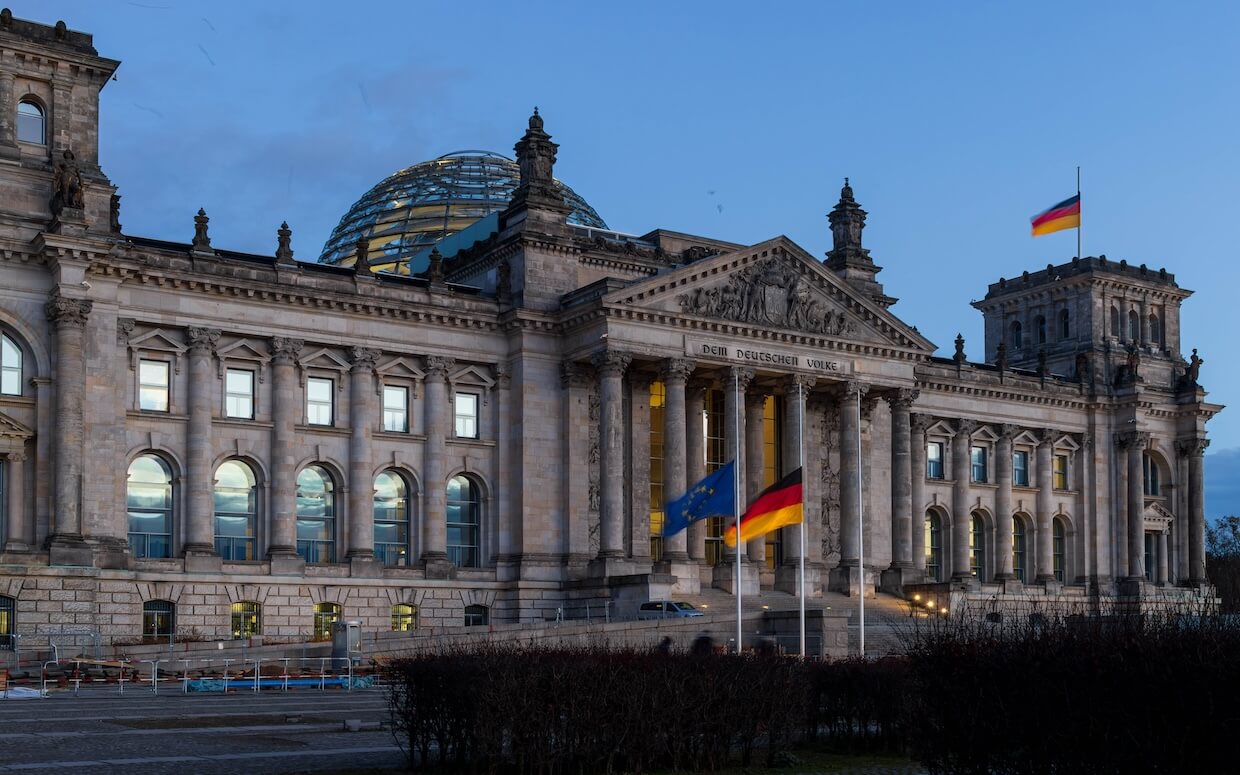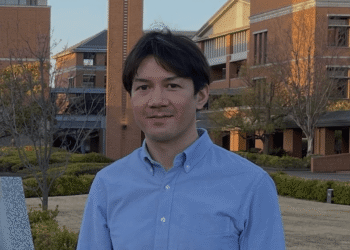The Alternative for Germany (AfD) has doubled its vote share in the February 23 elections, marking what Professor Kai Arzheimer calls “a turning point in post-war German politics.” While expected, this surge solidifies the AfD as Germany’s second-strongest party, normalizing far-right rhetoric in mainstream discourse. Arzheimer highlights how economic anxiety, deindustrialization, and anti-immigration sentiment fuel AfD’s rise. He also warns that mainstream parties risk losing credibility by mimicking far-right policies rather than offering bold alternatives. Despite its growing influence, AfD’s radicalization presents both an opportunity and a challenge for German democracy. As political fragmentation deepens, the response of centrist parties will determine whether this shift is temporary—or part of a long-term realignment.
Interview by Selcuk Gultasli
The Alternative for Germany (AfD) has cemented itself as a formidable force in German politics, nearly doubling its vote share in the February 23 elections compared to 2021. According to Professor Kai Arzheimer, a leading expert on far-right politics and political behavior at the University of Mainz, this outcome, while anticipated, marks a turning point in post-war German politics. "We now have a party that is not just populist and radical but also contains some extremist elements as the second strongest party in Parliament," Professor Arzheimer notes, calling the development a game-changer in the country’s political landscape.
The AfD’s electoral success is not an isolated phenomenon. Across Europe, far-right parties have gained ground, often benefiting from economic anxiety, nationalist rhetoric, and anti-immigration sentiments. In Germany, the party’s influence extends beyond its electoral gains, shaping the political discourse and policy agendas of mainstream parties. Professor Arzheimer highlights how, in recent years, even traditionally centrist parties have shifted their rhetoric and policies on immigration and national identity, a trend he attributes to the AfD’s normalization of far-right discourse.
One of the key factors behind the AfD’s success is its strategic use of social media, particularly in the wake of Elon Musk’s takeover of Twitter (X). While Professor Arzheimer downplays Musk’s direct impact on the election, he acknowledges that algorithmic changes and the reinstatement of extremist accounts have helped amplify the AfD’s messaging. “The AfD is a dominant player on most social media platforms,” he explains, adding that their online presence is a significant factor in their mobilization efforts.
Regionally, the AfD remains strongest in Eastern Germany, where it secured over 35% of the vote in some areas. However, as Professor Arzheimer points out, its appeal has also grown in certain Western post-industrial and rural areas affected by economic decline. This expansion raises the question of whether the AfD’s rise is a temporary protest vote or a lasting realignment. While some new supporters come from former non-voters, Professor Arzheimer believes there is now a solidified base of AfD voters that is not disappearing anytime soon.
As the AfD continues to push German politics further to the right, mainstream parties face a crucial choice: continue accommodating the far-right’s rhetoric or present a bold alternative. In this interview, Professor Arzheimer offers a deep dive into the AfD’s trajectory, its impact on German democracy, and the broader implications for Europe.
Here is the transcription of the interview with Professor Kai Arzheimer with some edits.
The Normalization of the Far-Right: How AfD Reshaped German Politics

Professor Alzheimer, thank you very much for joining the interview series. Let me start right away with the first question: How do you assess the AfD’s performance in the February 23 elections, in which it doubled its vote since the last elections in 2021? Did its results meet expectations, and what does this indicate about its trajectory in German politics?
Professor Kai Arzheimer: Yes, as you said, the AfD was able to double its 2021 result. That was largely expected because it was in line with the polls. However, I think this is still a turning point in post-war German politics because we now have a party that is not just populist and radical but also contains some extremist elements as the second strongest party in Parliament. This is a very worrying development. It is not entirely unexpected, as it aligns with the trajectory we have seen in the polls, but it is nonetheless a game changer.
Do you think the support of Elon Musk and J.D. Vance paid off in the elections for AfD?
Professor Kai Arzheimer: I think in the short term, it didn’t make much of a difference. If you look at the polls, there is no bump. Also, X (Twitter) is not that popular in Germany. Even Elon Musk is not that popular in Germany. It was a big international story, but domestically, it didn’t matter much. However, what we can see is that the AfD is a dominant player on most social media platforms, including X (Twitter). This is something that did not start with Elon Musk’s intervention in the German campaign but rather one or two years earlier when he took over. Twitter changed the algorithm, invited extremist accounts back, and all that. So yes, the social media presence of the AfD is a contributing factor, but it cannot be tied specifically to Musk’s meeting with the AfD’s leader on Twitter.
How do regional differences in Germany shape support for the AfD? Does the party remain primarily an eastern phenomenon, or has its appeal broadened across Germany?
Professor Kai Arzheimer: That’s an interesting question. What we have seen in the past is that the AfD was much stronger in the Eastern states, but it was never confined to the Eastern states. It was roughly 50% stronger—so if it had 10% in the West, it would have 15, 16, or 17% in the East. That pattern is largely intact.
In some Eastern regions, the AfD polled more than 35% in this election, whereas nationally, it stands at around 21%. However, they have made inroads in some parts of the Western states that have been left behind, to use the usual language. Post-industrial towns hit by structural change or peripheral rural areas in the West also see strong results for the AfD. It has never been a purely Eastern phenomenon, but there is still some Eastern factor in play. That’s my assessment at the moment.
AfD’s Rise Is ‘Not a Pure Protest Vote’ but a Deep-Rooted Political Shift

The AfD has made significant gains in recent regional and national elections. Do you see these gains as a temporary protest vote or part of a long-term realignment in German politics?
Professor Kai Arzheimer: I think it was never a pure protest vote. That’s a narrative often repeated in the media, but we know, going back all the way to 2013, that the AfD vote has always been issue-driven. The AfD quickly aligned itself with the immigration issue, which remains its main concern—and the voters’ main concern. Nothing has changed about that.
The really interesting question, in my view, is how much of this 21% in the current election is already solidified. As we said initially, they managed to double their result. Much of this additional support is coming from former non-voters, and I think it’s too early to say that these former non-voters are already tied to the AfD. However, there is certainly a core of AfD voters who identify with the party and its main issues, and this is not going away overnight.
Despite ongoing controversies, including investigations into AfD figures for extremism, the party continues to attract voters. To what extent do you think the AfD has succeeded in normalizing far-right discourse within Germany’s political mainstream?
Professor Kai Arzheimer: Yeah, to a great degree. They have been normalized, and they have been able to normalize far-right discourses. If you look at the term remigration, a year ago, it was a total scandal that AfD functionaries met with the leader of the Identitarian Movement to discuss remigration, which is a longstanding code word in right-wing extremist circles for excluding people from the national community and sending them back to the countries where their parents or grandparents came from.
At their electoral party conference just a few weeks ago, the leader of the AfD, who likes to style herself as a relatively moderate, modern conservative, said, “Well, if that’s the party line, it’s the party line. I have no problem with that word, remigration.” That reflects the broader shift that has happened across Germany. The whole discourse has moved further to the right. There is a new focus on immigration that simply wasn’t there in 2021, which helps explain why the AfD has been able to grow so strong in a relatively short time.
To what extent has the AfD’s increasing radicalization impacted its electoral appeal? Does its shift further to the right strengthen or limit its influence in mainstream politics?
Professor Kai Arzheimer: It should have limited their influence in mainstream politics. However, at present, many people accept that the AfD is now part of the political landscape. The so-called firewall—an agreement among democratic parties not to collaborate with the AfD—remains in place but has come under attack.
There was a controversial vote right before the election in the Bundestag, where the center-right parties, the Christian Democrats and the Liberal Democrats, voted with the AfD on a purely symbolic motion. That was widely seen as taking a massive chunk out of that firewall and speaks to the idea that, while the AfD is shifting ever further to the extreme right, it is also being normalized by other parties and the media.
AfD Voters Are ‘Disproportionately Male’ and Driven by Immigration Concerns
What voter demographics were crucial for the AfD’s success in this election? Who are today’s AfD voters? Have we seen a shift in their demographics or motivations compared to previous elections? Is the party still primarily attracting protest voters, or is it developing a more solidified long-term base?
Professor Kai Arzheimer: Their social base is relatively well known, and the election results align with previous patterns. It is still early—just days after the vote—and we only have the exit polls from Sunday. However, it is already evident that their voters are disproportionately male, with the AfD exhibiting the largest gender gap in German politics. Their electorate is primarily from the Eastern States—though not exclusively—but the East is overrepresented within their base.
These voters are mostly middle-aged, with some younger voters as well. They primarily identify as working class and perceive themselves as struggling. They are deeply worried about the way Germany is developing—not just about immigration, but also about the economy and the presence of migrant-origin citizens in Germany. This is an important factor in understanding the AfD vote. So, overall, it aligns with what we have seen in the past, but the level of mobilization is even higher. As I said, they managed to attract former non-voters, who largely share this same profile.
What role did economic nationalism and welfare chauvinism play in the AfD’s campaign and voter support? Has its economic messaging evolved in response to voter concerns?
Professor Kai Arzheimer: Yeah, so the economic messaging has slightly evolved. The AfD used to be an economically liberal party—you could even say it was neoliberal—but that has changed somewhat. They have incorporated more welfare chauvinist elements and placed a renewed focus on securing the position of pensioners and so-called ‘deserving German workers’. However, it doesn’t really matter because voters do not primarily support the AfD for their economic policies, views on pensions, or similar issues. Their support is driven by the idea that Germany is being invaded by foreigners and that the AfD is the party that will close the borders and defend against these foreign invaders. That is the primary focus for voters. They are also economically insecure, but from what we see in the exit polls, that did not play a significant role in this election.
AfD Is ‘Selling a Dream of Going Back to the Past’
To what extent are economic anxiety, deindustrialization, and migration concerns fueling AfD’s success? How does the party balance its nationalist rhetoric with voters’ economic grievances?
Professor Kai Arzheimer: Basically, they are promising a return to the 1990s, or at least the early 2000s. They position themselves as the defenders of the internal combustion engine and advocate for a return to an economic model based on manufacturing and an easy supply of cheap energy, mostly from Russia. They are essentially selling a dream of going back to the past—not just socially, but also in terms of Germany’s economic alignment with Russia and other authoritarian countries. It all feeds into the narrative that the country is in decline, and that this is the fault of foreigners coming in, but also the fault of the government for investing in solar energy and wind turbines and cutting access to raw materials from Russia. That’s their storyline. It’s a complex mix of grievances and illusions, I would say.

Has the AfD’s presence in German parliament affected political discourse and policymaking? Have they managed to push mainstream parties toward more restrictive policies on immigration and national identity?
Professor Kai Arzheimer: Yeah, definitely. The outgoing government started as what they called a progress coalition, consisting of the center-left Social Democrats, the center-left Greens, and the Liberal Party. While there was a lot of infighting and conflict over how to handle the economy and how to finance Germany’s engagement in Ukraine, these parties initially agreed on liberalizing citizenship rules, increasing immigration into Germany for mostly economic reasons, and similar policies.
But over the course of the last three years, they tightened rules for asylum and began framing immigration as a problem for internal security. Even the left-leaning and center parties followed the discourse that the AfD brought to the table. What was even more striking was how the Christian Democrats shifted further to the right under the leadership of Friedrich Merz, who also began to adopt at least parts of this rhetoric. You could say it’s like the pendulum swinging back because this was a position the Christian Democrats took in the 1990s and early 2000s. They moved toward the political center under Angela Merkel, becoming more accepting of immigrants, and now they are going back to the past. But this shift is really driven by their fear of the AfD and their desire to win back former voters from the AfD.
AfD Is Undermining Trust in Institutions and the Coherence of the Democratic Process
Has the AfD’s association with authoritarian and anti-democratic rhetoric affected broader political trust in Germany? Are we seeing an erosion of democratic norms due to their influence?
Professor Kai Arzheimer: Yes, up to a point. There was a very worrying event in the state of Thuringia following the election, where the President pro tempore—so there’s a general rule in German parliaments that the oldest person chairs the initial session of a new parliament—happened to be an MP for the AfD. This was strategically planned by the AfD. His job was to give a ceremonial speech and then carry out the necessary formalities for Parliament to become operative. However, he simply refused to give up the podium. He filibustered, and the other parties had to go to the State Constitutional Court to stop him and enable Parliament to function. Many observers think this foreshadows what the AfD intends to do. They are not really playing by the rules. They are very uncivil in Parliament, more generally threatening and insulting their political opponents. All of this is undermining trust in institutions and the coherence of the democratic process in Germany.
What implications does this election have for the long-term stability of the German political system? With the AfD’s growing influence, how will mainstream parties respond? Can mainstream parties effectively counter the AfD’s rise, or are we heading toward greater political fragmentation?
Professor Kai Arzheimer: So greater political fragmentation is a fact, and this is not going to change. It’s not just the fault, if you wish, of the AfD. It’s a general tendency that we observe in Germany, but also in many other Western countries. The left is fragmented, and now the right is fragmenting too.
But mainstream parties can do something. They can stop copying the AfD’s talking points and try to push their own issues back on the agenda. This is something they have attempted in the past, but they were not very confident in doing so.
Going back to October and November, the biggest issue for most voters in Germany was not immigration—it was the dire state of the German economy. The Christian Democrats were in a position to lead a campaign focused on the economy because this is where people still trust them. They have a reputation for being good managers of the economy. In particular, the leader of the Christian Democrats has a background as a corporate lawyer and a lobbyist, someone who can talk to business leaders and is very well connected.
But he was reluctant to center the campaign on the economy. He pivoted back to immigration in January, likely because he was panicking following some extremist attacks during the campaign. He felt that he had to return to immigration, but that strategy did not pay off for him or his party at all.
So, to come back to your question and stop my rant—yes, I think mainstream parties still have a chance. There is no natural law that dictates that the radical right, or in this case even the extreme right, must take over Germany or other Western democracies. But mainstream parties must be courageous enough to set their own agenda and not just follow where the AfD is leading.
Cooperation with AfD Is ‘Not Going to Happen on a Large Scale’—For Now

Do you foresee continued attempts at ‘cordon sanitaire’ policies, or could we see an eventual shift toward cooperation, at least at the regional level?
Professor Kai Arzheimer: For the time being, the Christian Democratic leadership has stated very clearly that there will be no coalition and no other form of cooperation. However, they have already set a precedent just before the election by voting with the AfD to support a motion in Parliament, which makes their commitment to the firewall less credible than it was in November or even December.
There have been attempts at the regional and, more importantly, the local level to work with the AfD, primarily in the Eastern States, where the AfD is particularly strong. In some parts of the East, there is a temptation to do this again in the future.
I think, for the time being, this is not going to happen on a large scale because even in the East—or precisely in the East—Christian Democrats are realizing that any form of cooperation with the AfD will further weaken their position. They are already behind the AfD in many parts of the East, and I believe this will dampen their appetite for being a junior partner to this party.
However, and this is quite a significant "but," the only coalition possible at the national level right now is a center-left, center-right coalition involving the Christian Democrats and the Social Democrats. The Social Democrats, having been badly beaten, are not particularly inclined to join that coalition. They will want to extract a price, and there is a chance that these talks could collapse. If that happens, we could be heading either for new elections or for a minority government led by the Christian Democrats.
If we end up with a minority government, there is a good chance that some pattern of collaboration between the AfD and the Christian Democrats will be established over the next couple of years. So, while unlikely in the short term, it is not out of the question.
Democrats Must Offer a ‘Credible Alternative
Germany is not alone in witnessing the rise of far-right politics. What does the AfD’s electoral performance say about broader trends in European far-right politics?
Professor Kai Arzheimer: Well, it shows that Germany is very much aligned with the developments we have seen in almost all Western European countries. Germany, Spain, and Portugal used to be exceptions, but since the 2010s, the radical right has become an important player in all European party systems. I think what this tells us is, first, that there is a demand for radical right politics and policies in most European societies, and secondly, that mainstream democratic parties need to be more creative in establishing a credible alternative and limiting the appeal of these parties.
And lastly, Professor Alzheimer, is Germany becoming more aligned with other European countries where the far-right has gained mainstream legitimacy? What lessons can be drawn from similar movements across the continent?
Professor Kai Arzheimer: Yes, I think the most important lesson that can be drawn from developments across the continent is that this idea of winning back voters by parroting the radical right is pointless. We’ve seen this in France, where the center-right has all but disappeared. We see this in Italy, where Berlusconi started to work with radical right parties in the 1990s, and now his former party is a junior partner in a far-right coalition. It’s very much the same in the Netherlands.
So the story is always the same: if you focus on immigration and backlash against progressive policies, people will vote for the original and not for the center-right parties, let alone the center-left moving in the same direction. So my bottom line from these developments is that democratic parties, especially center-left parties, must be a bit bolder and reestablish themselves as a credible political force for democracy and prosperity.


